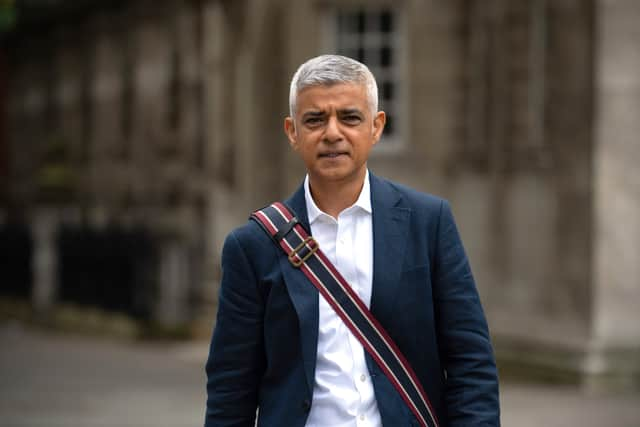ULEZ: Which councils outside London are continuing to refuse TfL’s signs on their roads?
and live on Freeview channel 276
Many drivers entering London’s Ultra Low Emission Zone (ULEZ) from outside the capital could be unaware of the potential charge, as councils stand fast and refuse signage on their land.
As reported by LondonWorld in the run-up to the ULEZ expansion on August 29, just one of the seven local authorities bordering the city had agreed to let Transport for London (TfL) install signs.
Advertisement
Hide AdAdvertisement
Hide AdHertfordshire, Essex, Thurrock, Kent, Surrey and Buckinghamshire had all said no, with Slough the only one to agree.
The RAC has previously called on the local authorities to change tact, saying “it’s probably time for councils and the mayor to work together rather than against one another”.


One month into the zone’s extension, LondonWorld can reveal none of the councils which responded by the time of publication have altered their stance.
Kent, Buckinghamshire, Hertfordshire and Essex confirmed they were continuing to refuse signage, while Slough has also retained its position. A spokesperson for Slough however again clarified the “administration [is] still very much against it”, even if it has allowed TfL to put up signs.
Advertisement
Hide AdAdvertisement
Hide AdA spokesperson for Hertfordshire Council said the authority’s position remains “that if the mayor of London believes that signage is required or that a lack of signage may lead to safety issues, it is for him and TfL to address, which they could do by moving the ULEZ boundary inwards and erecting the required signs inside greater London”.
Thurrock and Surrey have yet to respond to a request for comment.
The expansion of the ULEZ to cover almost all of greater London means most drivers of non-compliant vehicles are liable to pay the £12.50 daily charge.


London mayor Sadiq Khan has previously called on the Home Counties to set up scrappage schemes to support those having to change to cleaner vehicles, imitating his and TfL’s own £160 million initiative.
Advertisement
Hide AdAdvertisement
Hide AdMr Khan told the Local Democracy Reporting Service: “One of the things I’m disappointed by, is rather than their council supporting them with a scrappage scheme, or lobbying the government [for funding], they (the home counties’ councils) would rather spend money on court fees and lawyers.
“More than a million pounds [was] wasted on court fees and lawyers – imagine how many vehicles could have been scrapped, how many residents could have been supported.
“What I’d say to those county councils outside London is two things – one is, you should be supporting your residents like Merton Council and others have been doing.
“But secondly – the government is your government, they’re from your party. Why don’t you join me on a cross-party basis to lobby this government [for more scrappage funding]?”
Advertisement
Hide AdAdvertisement
Hide AdA spokesperson for the mayor previously told LondonWorld that City Hall and TfL are “working closely and collaboratively with the local authorities concerned to install the infrastructure needed”.
They added the mayor had been clear the decision to expand was “an incredibly difficult one”, but necessary due to the impacts of air pollution in the capital.
This publication also revealed the government has “no power” to force councils to allow TfL permission to install ULEZ signage, meaning the authority rests solely with each local authority concerned.
Comment Guidelines
National World encourages reader discussion on our stories. User feedback, insights and back-and-forth exchanges add a rich layer of context to reporting. Please review our Community Guidelines before commenting.
